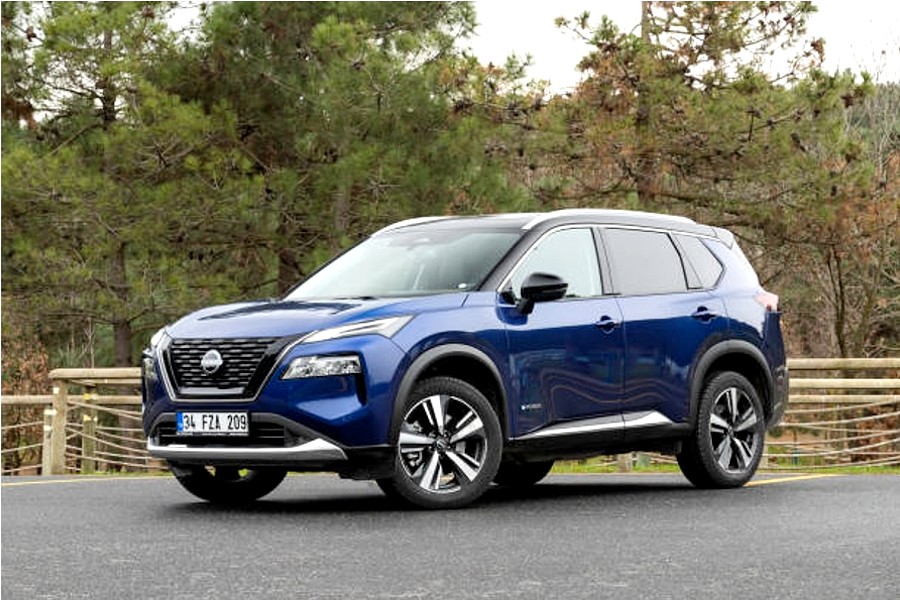Are you tired of feeling like insurance is an enigma, a confusing and daunting concept that you can never seem to fully wrap your head around?
Continue reading
Proven Tips To Reduce Car Insurance Costs Without Sacrificing Coverage
Reducing your car insurance premiums doesn't usually mean sacrificing coverage or protection these days.
Continue reading
Money-Saving Secrets For College Students Seeking Affordable Car Insurance
Inexperience and a tendency for risky maneuvers on the road are common among teenagers and college students. Insurance Institute for Highway Safety (IIHS) confirms this via the statistics it has collected. According to the IIHS report, in 2021, 3,058 teenagers aged 13-19 lost their lives in car accidents in the United States.
Insurance companies classify students as high-risk drivers and charge them high rates for auto insurance. But is it possible to reduce the cost of coverage for young people?
In this article, we'll discuss the factors that affect policy costs and discounts available for students and share some auto insurance tips. We'll also provide examples of companies offering cheap insurance for college students.
Factors Affecting the Cost of Auto Insurance for Students
First, let's talk more about why insurance for student drivers is more expensive and what factors insurers consider when forming the cost of the policy:
- Age. Perhaps the most obvious criterion. The younger the driver, the less experience they have; therefore, the higher the risk of accidents. Agencies set high premiums for car insurance for college graduates aged 21-24 and teenagers aged 16-21.
- Sex. According to a U.S. Department of Transportation Fatality Analysis Reporting System (FARS) study, male drivers are twice as likely to be killed behind the wheel as female drivers. Because of this, rates for male student drivers may be higher than those for females. It's important to note that basing student car insurance quotes on gender is prohibited in six states: Pennsylvania, California, Massachusetts, Michigan, North Carolina, and Hawaii.
- ZIP code. Insurers consider the crime rate, the number of car thefts, and accidents in your area when determining your policy rate. Generally, premiums are higher for residents of major cities than those in rural areas.
- Coverage types. The expenses for student auto insurance depend on the types of policies chosen. It's important to consider the mandatory coverage required by your state's laws. Note that no specific level of auto insurance is required in New Hampshire and Virginia. You may also need additional policies such as personal injury protection, medical payments coverage, uninsured motorist insurance, and more.
What Are the Kinds of Student Discounts on Car Insurance?
To get a good deal, research what discounts insurance companies give. Some of the most common options include:
- Good Student Discount. This offer is available for students with certain academic accomplishments. For example, maintaining a grade point average of B or higher, high scores on standardized tests, inclusion in the dean's list, and more. Progressive offers good student discounts that are around 10%.
- Distant Student Discount. This discount reduces rates for students whose school or college is more than 100 miles from home. Leaving your car at home can reduce the risk of accidents or traffic violations, positively affecting your rate. On average, car insurance for college students away from home can save you up to 25%.
- Safe Driving Discount. Students who have completed safe driving courses are also eligible for lower coverage premiums. For instance, Geico allows you to save up to 10% on insurance premiums for drivers who have successfully passed a qualifying exam at driving school. Additionally, American Family offers a "Teen Safe Driver" loyalty program for teenagers under 21. State Farm also has student car insurance plans called "Steer Clear" for drivers under 25.
How to Save Money on Car Insurance for a Student: The Secrets of Choosing the Best Policies
Despite the high rates for young people in college, you can lower your costs. Let's look at a few helpful ways to find the cheapest auto insurance for students:
- Compare insurance plans. Choose multiple companies to see which offers the most favorable conditions for student insurance.
- Look for available discounts. Inquire with insurance company representatives about discounts and bonuses for college students. Compare the benefit conditions across different companies and consider your circumstances. This approach will help determine the most suitable car insurance quotes for students.
- Consider pay-per-mile insurance. If your college is located nearby or you don't plan on using the car frequently, consider a policy with pay-per-mile pricing. Typically, the minimum rate is around $30 per month. A telematics device will be installed on your vehicle to track mileage. It will also monitor other driving metrics that determine your driving style. Some companies offer discounts of up to 15% on student car insurance for good drivers.
- Increase your deductible. Increasing your deductible (the amount the insurance company doesn't reimburse) can lead to lower monthly premiums if your budget allows it.
- Study necessary coverage. Analyze your circumstances and determine the required types of auto insurance for students. For example, comprehensive coverage may not be necessary if you have an older car or if you no longer owe money on it.
- Keep the student on the parent's policy. This is the simplest way to reduce expenses on auto insurance. On average, you can save around $3,000 because obtaining a separate policy for an 18-21-year-old driver would cost an average of $4,600 per year, whereas including them in the parent's policy would cost around $1,600.
What Companies Offer Cheaper Car Insurance for Students?
In the USA, numerous large and small insurance companies offer their services. You can also independently research some available options. To facilitate the process of finding a suitable company, we have compiled a list of rates for auto insurance for college students:
- For 18-year-old college students, State Farm offers the lowest rates for individual policies at $2,966 per year. For a family insurance policy, the cost is $2,716. GEICO has the cheapest rates for including a student in a parent's policy at an annual premium of $2,431, while a separate policy costs $3,594 annually.
- For 19-year-old students, State Farm charges $2,531 per year for individual coverage and $2,344 for family coverage. Nationwide offers the most advantageous option for a parent's policy at $2,066.
- For young adults aged 20, State Farm offers cheap student car insurance at $2,272 per year. However, purchasing a family policy with Nationwide for $2,170 annually is more cost-effective.
- For 21-year-old students, GEICO offers the cheapest individual policy at $1,824 per year, while the most expensive is from Farmers at $2,532. If you need to include a student in a parent's coverage, consider Nationwide, which costs $1,582 annually.
To make the right choice, it is advisable to consult an independent insurance agent to obtain affordable auto insurance for college students.
Final Advice
The amount you spend on student car insurance depends on various factors and circumstances. Therefore, you must choose an insurance company very carefully. Take the time to research all available information about the services and conditions offered by insurance agencies. Additionally, consider the advice on selecting cheap auto insurance for students to maximize savings for your family budget.
Drive With Confidence: Understanding The Importance Of Insurance
By Bretton Love
Insurance is an important safety net for all drivers, providing peace of mind and covering the costs associated with accidents.
Continue readingStart 2023 Off Healthy: Here’s How To Get Affordable Insurance Health Coverage
By El Mansour Bettahar
Nobody plans to get sick or injured, but sometimes it’s unavoidable. Ten years ago, I got into an accident at my construction job.
Continue reading6 Features You Must Compare Before Buying Family Health Insurance
Medical emergencies are one of life's many uncertainties. With the rising cost of healthcare in India, purchasing a health insurance policy is nearly unavoidable.
Continue readingWhy You Should Always Read Insurance Provider Reviews
Buying a car is a big purchase. But it's not just the car itself that you need to think about.
Continue readingThe Main Benefits Of Getting Insurance As A Freelancer

Guide In Dealing With Insurance Companies: How Plantation Personal Injury Lawyer Can Help

Guide In Dealing With Insurance Companies: How Plantation Personal Injury Lawyer Can Help
Filing A Car Insurance Claim? Here’s What To Expect
7 Awesome Insurance Tips For Future Insurance Agents
How To Know If Dental Insurance Works?












